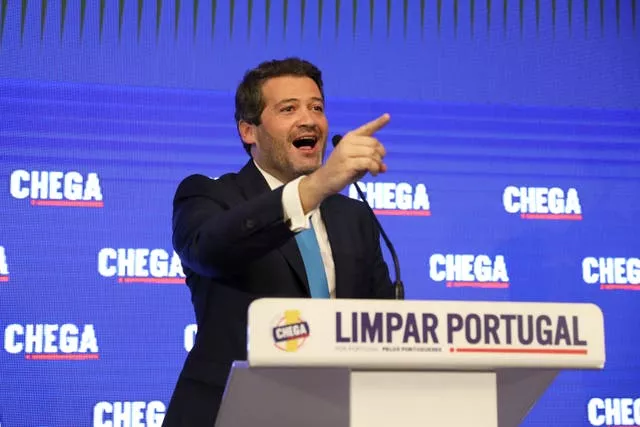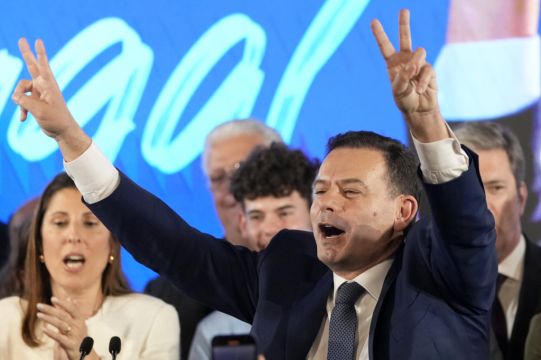Portugal’s political future is hanging in the balance with a final decision on the winner of Sunday’s general election set to take weeks after a surge in support for a populist party.
The centre-right Social Democrat-led Democratic Alliance won 77 seats in the 230-seat National Assembly – one more than the centre-left Socialist Party, which has been in power for the past eight years.
The deciding votes will come from voters abroad to decide four parliamentary seats after an election night full of suspense. That count could take more than two weeks.
The hard-right Chega (Enough) party captured 48 seats in a milestone result that underscored a drift to the right in the European Union.

Smaller parties took the rest of the vote in an election that saw turnout rise to 66%, the highest level in Portugal for years.
The Social Democrats and Socialists have alternated in power for decades, but they have never come up against such a strong challenge from a hard-right party.
But Social Democrat leader Luis Montenegro, who likely would become prime minister if his alliance wins, said he would keep his campaign promise to shut out Chega and refuse to negotiate power-sharing with the populists. He said he expected to form a government on his own.
Chega leader Andre Ventura, a former law professor and television soccer pundit, has said he is prepared to drop some of his party’s most controversial proposals — such as chemical castration for some sex offenders and the introduction of life prison sentences — if that enables his party’s inclusion in a possible governing alliance with other right-of-centre parties.
His insistence on national sovereignty instead of closer European Union integration and his plan to grant police the right to strike are other issues that could thwart his ambitions to enter a government coalition, however.

“One thing is for sure tonight, the two-party system in Portugal is finished,” said Chega leader Andre Ventura, who said the party “stands ready to be part of a government”.
Chega ran its campaign largely on an anti-corruption platform.
Corruption scandals triggered the early election after former Socialist leader and prime minister Antonio Costa resigned in November after eight years as prime minister amid a corruption investigation involving his chief of staff. Mr Costa has not been accused of any crime.
The 46-year-old Socialist leader Pedro Nuno Santos is promising change with what he vaguely calls “a fresh boost”.
Mr Montenegro, 51, says he will draft non-party-affiliated figures – people he calls “doers” – into his government.







